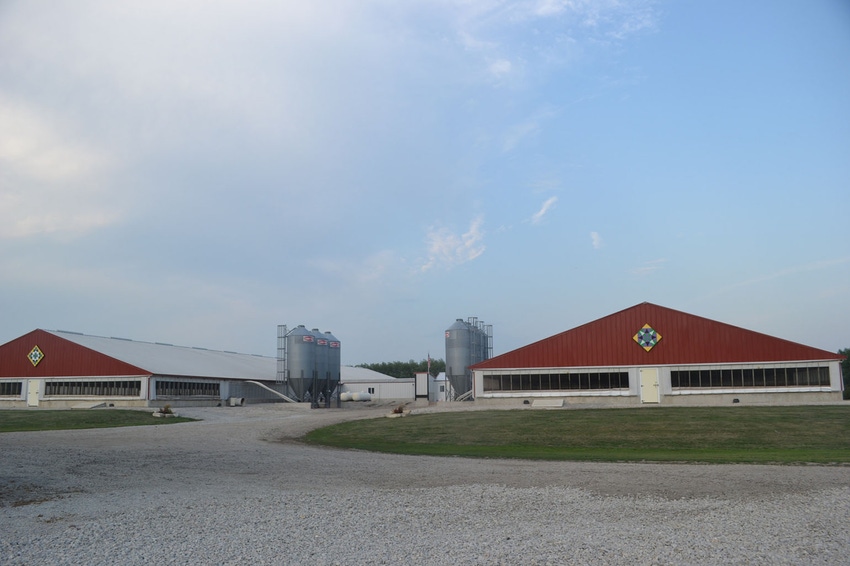Legislative Watch: Another round of assistance for producers; Congress works on disaster bill; Canada, Mexico from tariffs; weather delays planting progress.

With the ongoing trade wars and retaliatory tariffs resulting in low commodity prices, the USDA announces another round of assistance to producers. The $16 billion aid package will include direct payments to producers, commodity purchases and trade assistance. A number of details still need to be announced including the payment rate for producers.
Market Facilitation Program: MFP will provide $14.5 billion in direct payments to producers of alfalfa hay, barley, canola, corn, crambe, dry peas, extra-long staple cotton, flaxseed, lentils, long grain and medium grain rice, mustard seed, dried beans, oats, peanuts, rapeseed, safflower, sesame seed, small and large chickpeas, sorghum, soybeans, sunflower seed, temperate japonica rice, upland cotton and wheat.
According to the USDA, producers will receive “a payment based on a single county rate multiplied by a farm’s total plantings to those crops in aggregate in 2019. Those per acre payments are not dependent on which of those crops are planted in 2019, and therefore will not distort planting decisions. Moreover, total payment-eligible plantings cannot exceed total 2018 plantings.”
Pork producers’ payment will be based on hog and pig inventory for a later-specified time frame. Dairy producers’ per hundredweight payment will be determined on production history for a later-specified time.
Producers will receive up to three payments. The first payment is expected to be made in late-July/early August after the Farm Service Agency’s crop reporting is completed by July 15. USDA will make a second payment in November and the third payment in early January if “conditions warrant.”
Food Purchase and Distribution Program: The Agricultural Marketing Service will purchase $1.4 billion of surplus commodities affected by trade retaliation. Products will include fruits, vegetables, some processed foods, beef, pork, lamb, poultry and milk for distribution by the Food and Nutrition Service for food banks, schools and other facilities serving low-income individuals.
Agriculture Trade Promotion Program: $100 million will be used by the Foreign Agricultural Service to develop new export markets.
The payments to farmers will help but will not make up for the lost sales and market share that the trade wars and lack of trade agreements are causing. We can expect other industries that have been negatively affected to begin asking for government assistance.
Disaster bill moving through Congress
The Senate passed a $19.1 billion disaster aid package that includes $3.005 billion in payments to farmers for unplanted acres and for stored grain that was damaged because of flooding.
The disaster payments are capped at 70% of the loss for farmers who did not buy crop insurance.
The legislation waives a payment restriction under the USDA’s trade relief program. Thus, producers earning more than $900,000 in adjusted gross income will be eligible for trade assistance payments if at least 75% of their income is from farming.
The House was expected to consider the bill today by voice vote, but because of a Republican objection the bill will be considered when the House returns from the Memorial Day recess.
Canada and Mexico drop tariffs
Canada and Mexico have dropped their retaliatory tariffs in response to the United States ending its tariffs on imports of Canadian and Mexican steel and aluminum. This is the result of the three countries reaching an agreement in which Mexico and Canada agreed to adopt tougher monitoring and enforcement measures to prevent Chinese steel and aluminum from being shipped to the United States through their countries.
Last year, both countries placed tariffs on U.S. products in response to President Trump’s tariffs on steel and aluminum. Mexico imposed a 20% tariff on pork and Canada placed a 10% tariff on prepared beef items.
U.S. Meat Export Federation President Dan Halstrom says, “Restoring duty-free access to the Mexican and Canadian markets is a tremendous breakthrough for the U.S. red meat industry. USMEF thanks President Trump and Ambassador Robert Lighthizer for reaching an agreement with Mexico and Canada on steel and aluminum tariffs and in turn Mexico and Canada’s lifting of the retaliatory duties on U.S. red meat. This also removes a significant obstacle for the U.S.-Mexico-Canada Agreement, and USMEF is hopeful that all three countries ratify USMCA as soon as possible.”
The National Pork Producers Council estimates Mexico’s tariff cost pork producers $12 per head or $1.5 billion on an annualized basis. Mexico is the U.S. pork industry’s largest export market representing over 30% last year.
Crop plantings still behind
Corn and soybean plantings made some progress last week but are still behind five-year averages. USDA’s latest weekly Crop Progress report shows 49% of corn acres have been planted compared to a five-year average of 80%. Soybeans planting were 19% completed compared to a 47% five-year average.
Source: P. Scott Shearer, who is solely responsible for the information provided, and wholly owns the information. Informa Business Media and all its subsidiaries are not responsible for any of the content contained in this information asset.
About the Author(s)
You May Also Like



